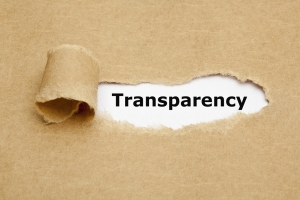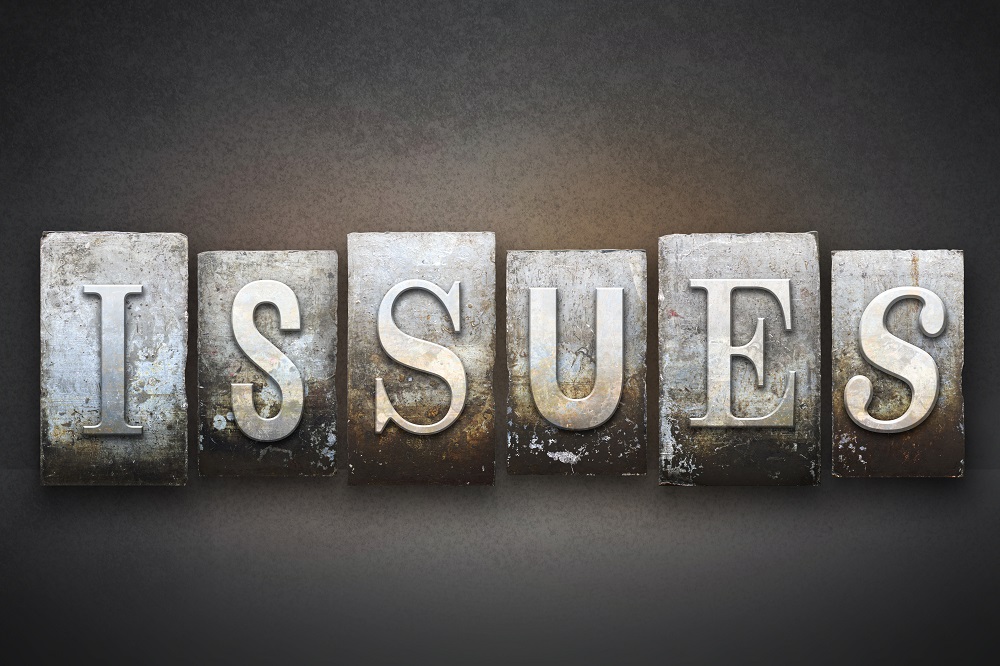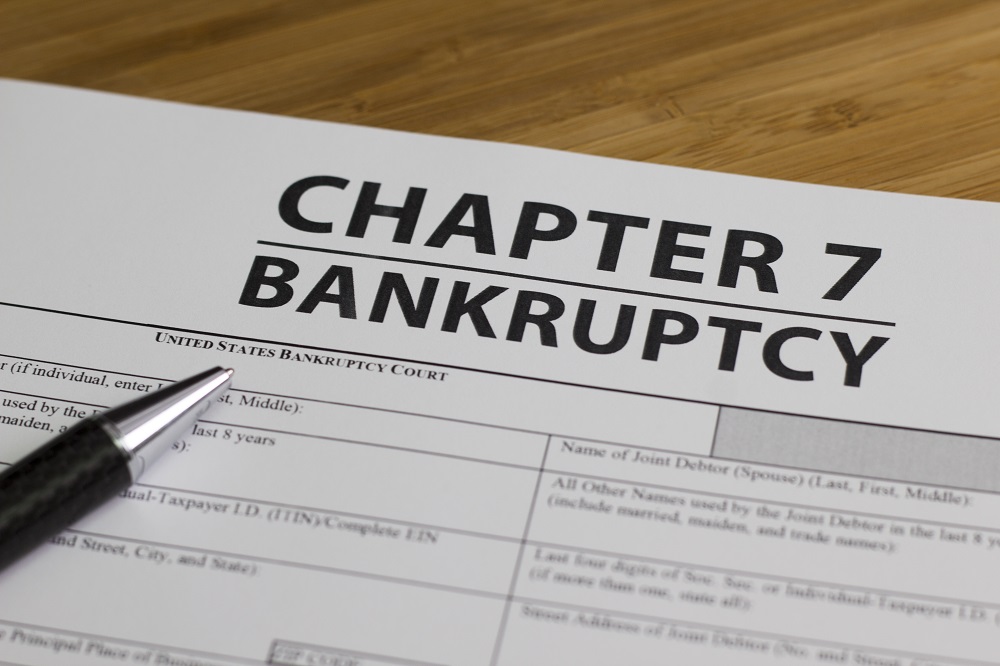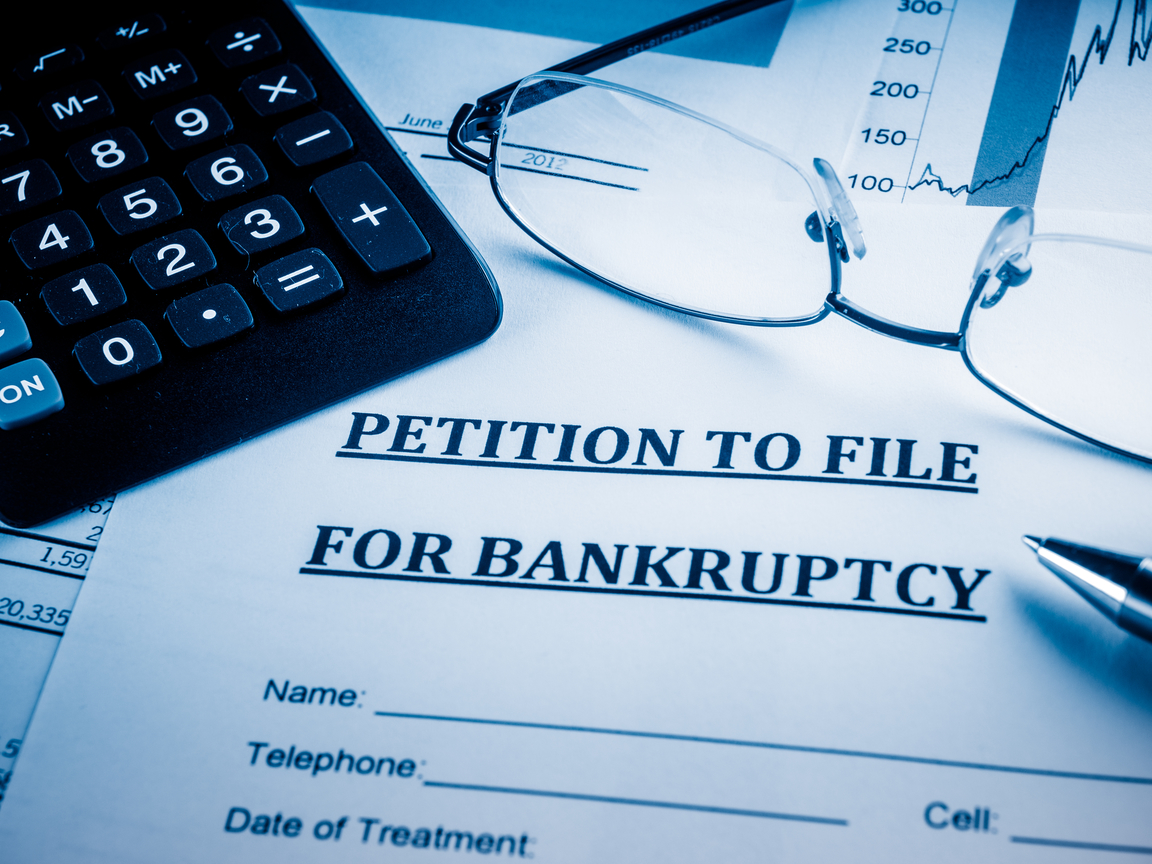Introduction to What not to do Before Filing Bankruptcy
 When it comes to filing for bankruptcy, the court does not just look at the state of your financial affairs when you file for bankruptcy. The court will also look at recent financial activity including large purchases, financial transfers, and selectively repaying some loans over other loans. The court will not grant a bankruptcy petition if it suspects that the debtor has done anything in bad faith before the petition has been filed. So, if you are seriously considering filing for bankruptcy you need to be conscious of what things you should steer clear of doing. Not everything the court will look at will be an illegal or bad act, so its important to know everything the court will look at.
When it comes to filing for bankruptcy, the court does not just look at the state of your financial affairs when you file for bankruptcy. The court will also look at recent financial activity including large purchases, financial transfers, and selectively repaying some loans over other loans. The court will not grant a bankruptcy petition if it suspects that the debtor has done anything in bad faith before the petition has been filed. So, if you are seriously considering filing for bankruptcy you need to be conscious of what things you should steer clear of doing. Not everything the court will look at will be an illegal or bad act, so its important to know everything the court will look at.
Why Transparency Before and During the Bankruptcy Process is Important
One thing that almost everyone knows about bankruptcy is that debts will go away at the end of the process. While this is true for most cases, it is not a simple process. The process of debts going away is called a bankruptcy discharge. The bankruptcy discharge is an order provided by the court that prevents a creditor from collecting on the debts that were listed in the bankruptcy petition.[i] What this means is that after the bankruptcy proceeding is completed, if the court discharges the debtor’s debt – that debtor is no longer financially responsible to pay the creditor for those debts. Before the court will discharge the debtor’s debts, the debtor has to fully comply with everything the court sets out during the bankruptcy petition. The debtor has to also not do anything fraudulent prior to filing for bankruptcy. Considering how much money the court will discharge for the debtor, it is no wonder that the debtor must be financially responsible.
It is important to note that not all debts can be discharged at the end of the debt.[ii] This is one major misconception that people ordinarily have – that all the debts will just go away after you file for bankruptcy. Some debts are going to remain permanently and will only go away when the debtor fully pays them off, or some other arrangement has been reached with the creditor. If the bankruptcy court approves the bankruptcy petition and begins the process of discharging debt, the following debts will not be discharged even though the debtor took all the appropriate steps for the proceeding: certain taxes, debts owed to a spouse or child for child support, debts owed to the government for fines or penalties, student loans, debts for personal injury caused by the debtor’s operation of a motor vehicle while intoxicated, debt owed to a certain tax-advantage retirement plans, debt for certain home owner association fees, attorneys fees in child custody or support cases, and court fines and penalties.[iii]
 If a creditor properly objects to the discharge of a debt, that debt may remain after the court discharges the debtor’s other debts.[iv] The creditor will need to file a motion for the court to consider not discharging the disputed debt.[v] Some of those debts might include: credit card purchases for luxury goods owed to a single creditor and aggregating to more than $650 and incurred within 90 days of filing for bankruptcy, cash advances aggregating to more than $925 obtained by the debtor within 70 days of bankruptcy, debts obtained by fraud or false pretenses, and debts incurred as a result of willful and malicious injury to another or to the property of another.[vi] The creditor who asks the court to not discharge any of the above types of debt must have evidence showing the ill will of the debtor.[vii] Without substantial proof to show the court, the court will likely still discharge the debt.
If a creditor properly objects to the discharge of a debt, that debt may remain after the court discharges the debtor’s other debts.[iv] The creditor will need to file a motion for the court to consider not discharging the disputed debt.[v] Some of those debts might include: credit card purchases for luxury goods owed to a single creditor and aggregating to more than $650 and incurred within 90 days of filing for bankruptcy, cash advances aggregating to more than $925 obtained by the debtor within 70 days of bankruptcy, debts obtained by fraud or false pretenses, and debts incurred as a result of willful and malicious injury to another or to the property of another.[vi] The creditor who asks the court to not discharge any of the above types of debt must have evidence showing the ill will of the debtor.[vii] Without substantial proof to show the court, the court will likely still discharge the debt.
Debts that are not dischargeable through the bankruptcy proceeding have that barrier in place because of public policy reasons.[viii] The legal system does not want to provide a fresh start to debtors who have abused the system. If a debtor goes and racks up all kinds of debt before filing for bankruptcy in the hopes of getting all this free stuff, the court is going to likely reject their petition. Bankruptcy is meant to be available for people who are in dire financial situations and need relief. Bankruptcy is not a win-win situation for the debtors who do need it. Bankruptcy takes a huge hit on your credit, which makes it harder to obtain loans for mortgages or cars or student loans. Bankruptcy is a very serious proceeding and the legal system puts up many barriers to ensure that only those who really need to file – can file.
First Thing Not to Do before Filing for Bankruptcy – Move Assets
 The bankruptcy court will ask that you include information about all of your assets and it is important to you are honest. If you attempt to move assets or “give” the assets away – the court is likely going to find out. You have to list every asset that you own, inexpensive and expensive, at the time of the bankruptcy filing.[ix] If you fail to provide accurate information to the court, or try to find assets, the court will likely reject the discharge of your debts and you could even face criminal penalties.[x] It is important to note that even if you move around assets and give things away before filing for bankruptcy, the court will look at that to. The court may look at your activities even up to a year prior to filing for bankruptcy.[xi] If anything moving of assets was done in poor faith, like to avoid putting those assets on your bankruptcy petition, you could still face issues with the bankruptcy petition.
The bankruptcy court will ask that you include information about all of your assets and it is important to you are honest. If you attempt to move assets or “give” the assets away – the court is likely going to find out. You have to list every asset that you own, inexpensive and expensive, at the time of the bankruptcy filing.[ix] If you fail to provide accurate information to the court, or try to find assets, the court will likely reject the discharge of your debts and you could even face criminal penalties.[x] It is important to note that even if you move around assets and give things away before filing for bankruptcy, the court will look at that to. The court may look at your activities even up to a year prior to filing for bankruptcy.[xi] If anything moving of assets was done in poor faith, like to avoid putting those assets on your bankruptcy petition, you could still face issues with the bankruptcy petition.
Now, if you are selling assets before filing for bankruptcy in an honest attempt to pay off your debts, the court will recognize this and not penalize you for those actions.[xii] Again, this must be done in good faith. If you decide to sell off assets for half the value and give those funds to a debtor who is a friend or family member, or a secured creditor, the court will likely have an issue with that transfer.[xiii] For additional information see the article on Nolo about what not to do before filing bankruptcy.
Next, Do NOT Selectively Repay Loans
This again goes to selling off assets to pay off creditors. If you chose to pay off friends and family members before secured creditors – or even unsecured creditors in some cases, the court will view this as a preferential transfer.[xiv] If the court does determine that a preferential transfer has taken place, the court can actually reverse that transfer all together. The bankruptcy trustee who was assigned to your proceeding can file for an adversarial proceeding to get the money back from the friend or family member who you paid.[xv] If the trustee is successful in actually getting the money back, and not just a judgment against that person, then the trustee can disburse that money to the creditors who were in line first to receive that money. Even though the court can reverse this transfers, it will look poorly on you in court and the judge may not be lenient in other matters in the future.
Do Not Wait Too Long To File and Inform Your Creditors
If you start to think about filing for bankruptcy, that does not mean that you should not continue to pay off your debts. Even if you begin the process of paperwork, you are still responsible to pay your debts. If you fail to pay your debts while you are contemplating the process or even beginning the process, that creditors can still legally come after you and your assets.[xvi] If a creditor has a judgment against you they may begin to garnish your wages, or even foreclose on your home.[xvii] It is important that if you think you are going to file for bankruptcy, that you contact all of your creditors to let them know. This may not stop them from trying to collect from your or garnish your wages, but it will put them on notice of the pending proceedings.[xviii]
As soon as you make the decision to file for bankruptcy, you should inform your attorney of who your creditors are so that your attorney can provide proper documentation to those creditors to stop them from collecting on the debtor.[xix] If a creditor garnishes from the debtor’s wages after the bankruptcy proceeding has begun, and the creditor had notice of this, the court can reverse this garnishment and provide the funds back to the debtor.[xx] Even though it is possible to get your property or money back if this happens, it would be better if this were never an issue to begin with. When a person goes to file for bankruptcy, they are in a financially dire situation and having funds taken from them could mean losing their home or not having any money for food. Not to mention that asking your attorney to handle this for you will cost you money in paying for those attorneys’ fees.
Finally, Do Not Hide That You Going To Receive Substantial Assets After The Proceeding
 This is similar to moving assets around before filing for bankruptcy. If you know that you are going to receive a substantial amount of money, or assets through a tax refund, an inheritance, or even a lawsuit settlement – you need to be clear that you are receiving those assets.[xxi] Those funds could be used to settle debts with creditors and pull you out of the financial hardship you are in – if you just wait to receive those funds. The court needs to be made aware that you will be receiving those assets after the proceeding because it will play a role in whether the court will grant your bankruptcy petition. Even though telling the court of this assets may mean you cannot file for bankruptcy, it is important to be honest with the court at all times. Failure to be honest could result in criminal penalties in some situations.
This is similar to moving assets around before filing for bankruptcy. If you know that you are going to receive a substantial amount of money, or assets through a tax refund, an inheritance, or even a lawsuit settlement – you need to be clear that you are receiving those assets.[xxi] Those funds could be used to settle debts with creditors and pull you out of the financial hardship you are in – if you just wait to receive those funds. The court needs to be made aware that you will be receiving those assets after the proceeding because it will play a role in whether the court will grant your bankruptcy petition. Even though telling the court of this assets may mean you cannot file for bankruptcy, it is important to be honest with the court at all times. Failure to be honest could result in criminal penalties in some situations.
Conclusion to What not to do Before Filing for Bankruptcy
If you are seriously considering filing for bankruptcy, there is a lot of information you need to know about the process. Your actions before, during, and even after the bankruptcy proceeding will play a crucial role in the bankruptcy proceeding itself – and it could result in a rejection of your petition. If you find out that you inadvertently transferred money to a friend or family member, or sold off assets not knowing that either of those actions are bad ones – that does not mean you are completely out of luck. You can still file and discuss what you should do with your attorney.
[i] See What is a Bankruptcy Discharge NOLO Legal Encyclopedia (Accessed July 27, 2016) http://www.nolo.com/legal-encyclopedia/what-is-the-bankruptcy-discharge.html
[ii] Id.
[iii] See Nondischargable Debts in Chapter 7 Bankruptcy NOLO Legal Encyclopedia (Accessed July 27, 2016) http://www.nolo.com/legal-encyclopedia/nondischargeable-debts-chapter-7-bankruptcy.html
[iv] Id.
[v] Id.
[vi] Id.
[vii] Id.
[viii] Id.
[ix] See What is a Bankruptcy Discharge NOLO Legal Encyclopedia (Accessed July 27, 2016) http://www.nolo.com/legal-encyclopedia/what-is-the-bankruptcy-discharge.html
[x] Id.
[xi] See Nondischargable Debts in Chapter 7 Bankruptcy NOLO Legal Encyclopedia (Accessed July 27, 2016) http://www.nolo.com/legal-encyclopedia/nondischargeable-debts-chapter-7-bankruptcy.html
[xii] See What is a Bankruptcy Discharge NOLO Legal Encyclopedia (Accessed July 27, 2016) http://www.nolo.com/legal-encyclopedia/what-is-the-bankruptcy-discharge.html
[xiii] Id.
[xiv] Id.
[xv] Id.
[xvi] Id.
[xvii] Id.
[xviii] Id.
[xix] Id.
[xx] Id.
[xxi] Id.





